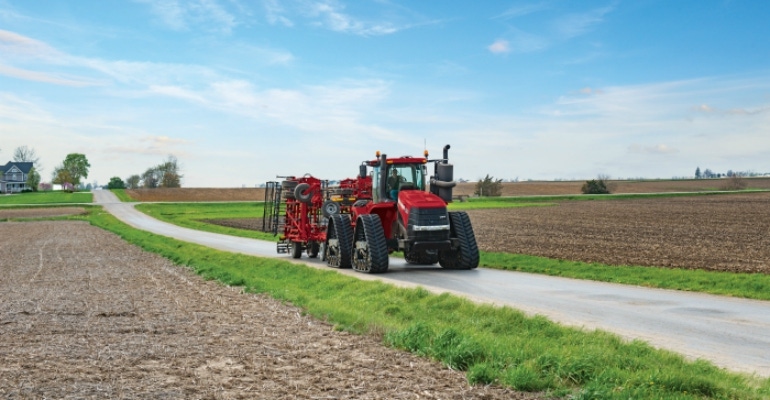
by Lydia Mulvany and Isis Almeida
The absence of trade deals has the potential to be “catastrophic” in the U.S. and transform some agricultural markets permanently, according to the one of the largest global machinery makers.
Brazil is taking advantage of the trade tensions -- expanding its planted area, which can mean cutting down forests, to supply soybeans to China, said CNH Industrial NV Chief Executive Officer Hubertus Muehlhaeuser. The longer tensions linger, the more overall capacity will increase and pressure prices, he said.
In an interview Thursday from Bloomberg’s Chicago office, Muehlhaeuser said he had spoken with Republican Senators and Congressmen, and “we heard everything from ‘it can happen very soon’ to ‘it could drag out to a year’.”
“It’s exactly that uncertainty that business doesn’t need -- that’s poison for us,” he said. “We need to have planning stability, we need to know where to make investments, we need more clarity.”
CNH Industrial owns the Case IH and New Holland tractor brands. It reported record profit Tuesday, beating analysts’ expectations and reaffirming its guidance for 2019.
Muehlhaeuser said he sees the possibility of a second round of aid payments to U.S. farmers as the trade war drags on.
While U.S. trade drama is a negative, the company’s outlook on Brexit is more positive.
CNH Industrial has one of the biggest European tractor facilities, based in Britain. But the company isn’t preparing for a hard Brexit. There might not be a Brexit at all, or there could be a “very, very soft Brexit,” Muehlhaeuser said. As a result, the company is selling inventory that had been built up previously as a precaution.
At an investor meeting in September, the company will address issues of whether there could be larger industry consolidation, as well as margin targets and the development of its portfolio segments over time. In the meantime, it’s actively scouting technologies with a view to making acquisitions or partnerships with startups.
“For the time being, there will be smaller buy and builds that we see,” Muehlhaeuser said. “A lot of companies will go nowhere, but many of them have promising technologies.”
--With assistance from Elizabeth Campbell.
To contact the reporters on this story:
Lydia Mulvany in Chicago at [email protected];
Isis Almeida in Chicago at [email protected]
To contact the editors responsible for this story:
James Attwood at [email protected]
Millie Munshi
About the Author(s)
You May Also Like




